Hello, my name is Sugimoto and I am a writer living in Kyoto.
With the Gion Festival approaching, I'm feeling a bit excited.
Monosus has satellite offices in Kamiyama-cho, Tokushima and Suo-Oshima-cho, Yamaguchi, and also has an affiliate company, Monosus Thailand (hereinafter, Monosus Thailand), in Bangkok, Thailand. I don't think there are many companies of this size with so many bases. That's also typical of Monosus.
Recently, at a meeting of the Monosasu site secretariat, we talked about how there have been few articles related to Monotai lately. This prompted us to conduct an online interview with Takuya Miyagawa, who was also involved in the establishment of Monotai. We asked him about the recent state of Monotai.
Speaking of which, next year will be the 10th anniversary of Monotai's founding?
Sugimoto Monotai was founded in November 2014, and next year will be its 10th anniversary. What is the current composition of the members?
Miyagawa : For me, the 10th anniversary isn't that important or anything, so I don't really care about it...but will that happen?
Up until now, the total number of members has been about 20. There are four MonoThai executives, and I am the only local manager. There are five Japanese members, including directors Yurika Machiyama, Yuki Hinata, Yuka Tanaka (seconded to Japan), Minetake Hata (seconded to Thailand), and checker/coder Natsumi Tanaka. There are 13 Thai members, including director Beth, nine coders, two interpreters, and Nu from General Affairs.
Sugimoto :Was it on a business trip when you first went to Thailand?

Miyagawa's first impression was, "This is a city," as he photographed the night view of the plaza in front of CentralWorld, a shopping mall in the center of Bangkok.
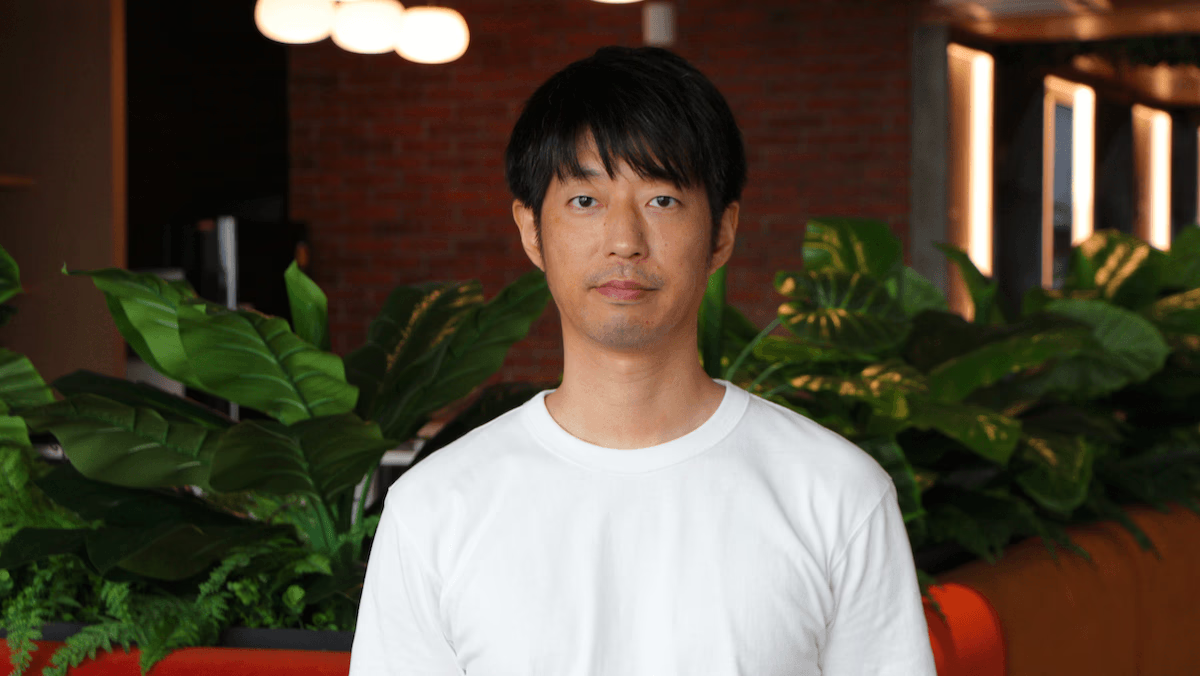
With Mr. Ito (right), who went on a business trip to Thailand with me
Miyagawa : It all started the previous year when three Monosus executives went on a tour of a Japanese company in Thailand. At the time, the Coding Factory (CF) was facing recruitment difficulties, and the idea of establishing a local corporation was born. To get a feel for the environment, this time CF's general manager Ito Yosuke and I went on a three-night tour. After that, I was seconded to a local partner company for about three months, and then the talks of setting up a corporation finally progressed. I was told, "If you stay in Thailand, we'd like to leave you as an executive," so I accepted the role of executive at Monosus.
From CF to establishing a Thai company: what's behind this spectacular job change?
Sugimoto : How did you go about setting up your company in Thailand?
MiyagawaThe company president, Mr. Hayashi, had researched the method itself beforehand, and together with Mr. Hayashi, I went to make a presentation to get approval as a business encouraged by the Thai government. Without approval from the Board of Investment of Thailand (BOI), we couldn't start up with 100% Japanese capital, and there were restrictions such as having to employ four Thai people for every one Japanese person. We were nervous when the company was turned down once, but we managed to get approval, and after that we proceeded with hiring start-up staff while receiving support from partner companies for registration and other matters.
Sugimoto: Your work at CF and your work setting up a local subsidiary in Thailand are not on the same level, they're completely different. Why did you decide to try it?
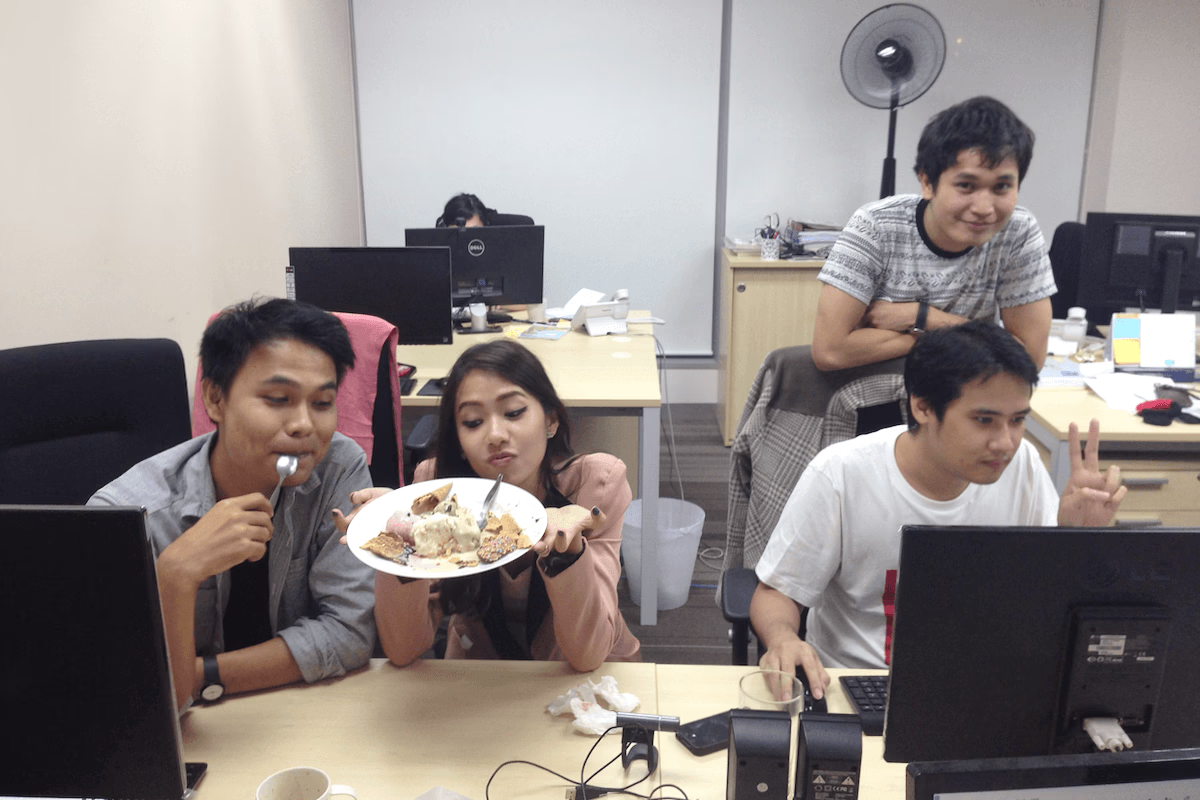
When we first started the company, we all worked overtime in the office before a delivery. "We would buy expensive ice cream as a gift to thank everyone," says Miyagawa.
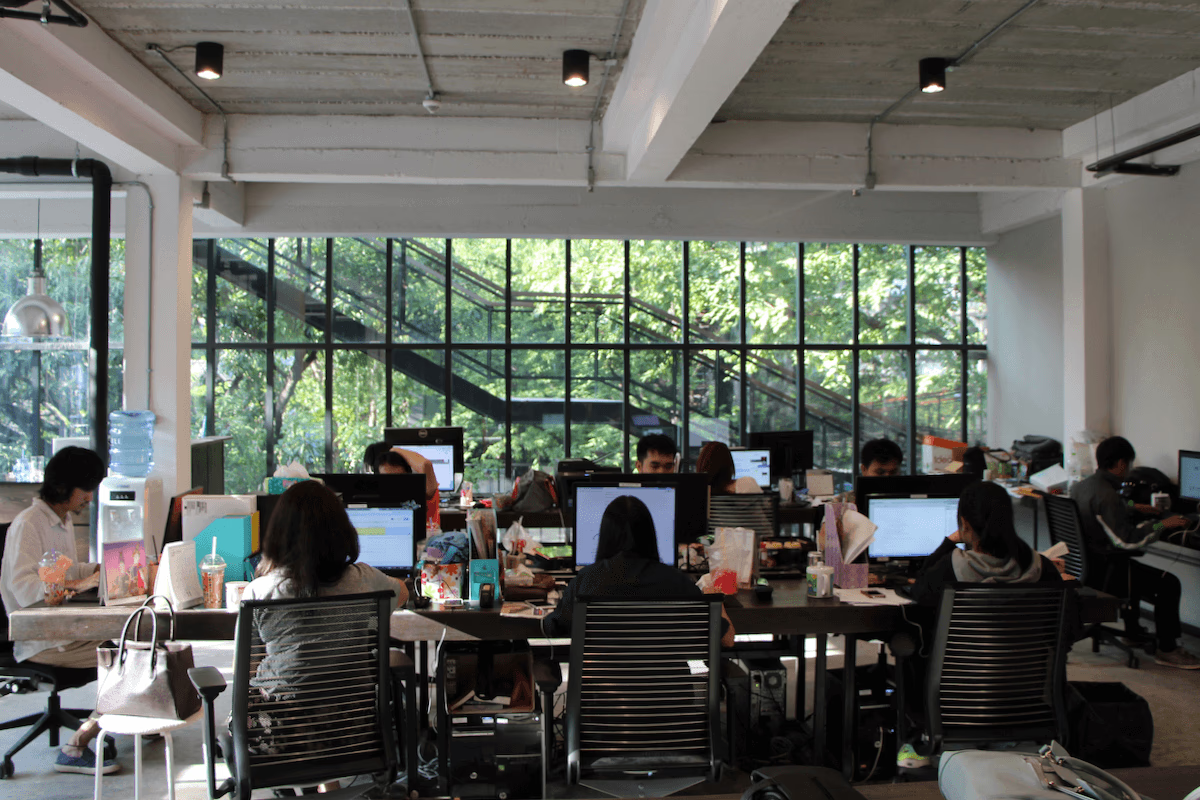
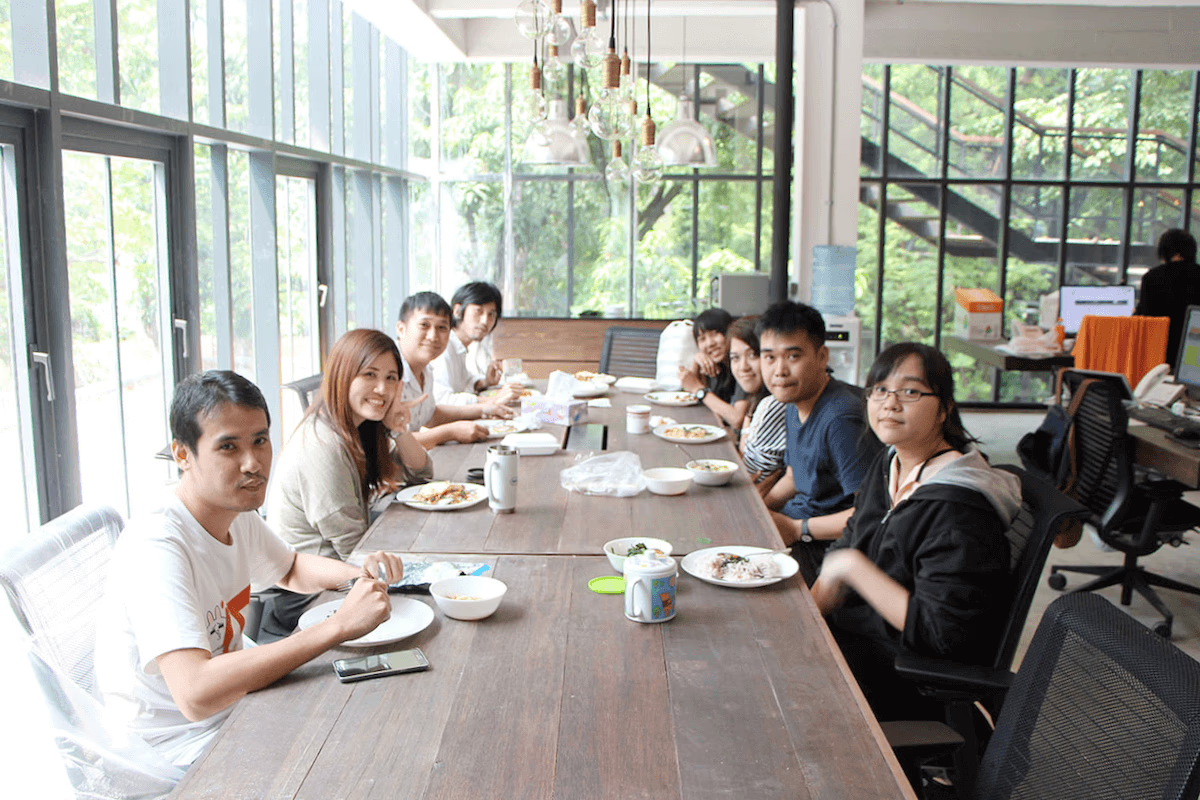
The second office was heavily DIYed by Miyagawa-san. It has a large dining table where everyone can have lunch together.
Miyagawa : That's true. I think there were difficulties, but I was more excited at the time. At the time, I had been working at Monosus for about three years, and rather than getting into the front-end of the web or coding, I wanted to change my job.
Thinking about my own characteristics and strengths, I think I'm good at assessing people and judging situations. In my first year at the company, I was suddenly selected to be a revision supervisor in the middle of a large-scale project, and I was also entrusted with mass production supervisor for other large-scale projects and interviewed for part-time jobs. I didn't have any experience in recruitment or team building up until then, but I felt like I was able to do it smoothly. I think I've been able to enjoy building Monotai's organization.
Remote work was a good fit for Monotai.
Sugimoto: Please tell us what's going on with Monotai lately.
MiyagawaWe moved to our current office in 2019. There are many IT companies in the office, and there is also co-working and event space, so we were thinking about collaborating with other companies. However, just over half a year later, the COVID-19 pandemic began. Monotai has been working remotely since late March 2020, and is still doing so today.
Sugimoto: Have there been any changes within the company since the shift to remote work?
Remote work has suited Miyagawa Monotai. There has been no particular disruption to work progress, and productivity has not dropped. Members who used to commute for 1-2 hours no longer waste time commuting to the office, and members who are raising children can spend time with their children, so the benefits are actually greater. Daily communication is now online, but we are also creating opportunities to talk about things other than work. The Thai members hold a weekly meeting called a "coder party," and the Japanese members talk for about 30 minutes every day at an evening meeting. The members have been working together for many years and have been getting along well, so I think they have been able to maintain their relationships even through remote work. Furthermore, new members are also able to receive training and build relationships remotely.
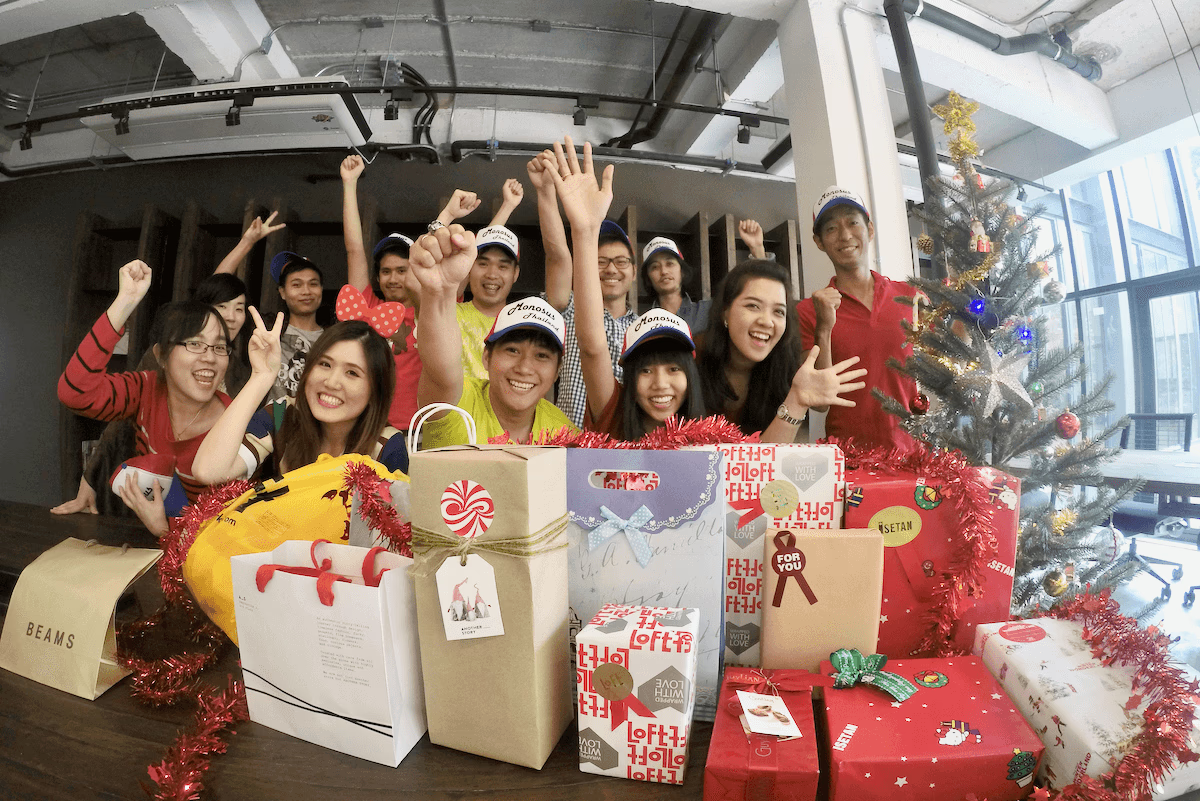
The annual gift exchange on the end of the year party. Every year, everyone prepares their own gift according to the "500B or more" rule. A commemorative photo was taken in front of the gifts.
At Monosus, we feel that there is a tendency to want to have everyone come to the office as much as possible, but I also want to emphasize rationality, so I think it's okay not to aim for everyone to come to the office every day. However, there are no more opportunities to gather, so we have some systems that we had prepared before but have now suspended them. In the future, we would like to try out rules that match the current situation, create opportunities for everyone to come to the office and gather, and create a win-win situation for employees and the company in a rational way.
Creating a fair and rational system
Sugimoto: Among Monosus' culture and systems, are there any aspects that you value even at Monotai?
Miyagawa : I think Monosus has a value system where everyone feels at home and tries to make the company better as if it were their own responsibility. Monosus' culture and systems are also based on the best parts that Thai people can embody.
Sugimoto : I hear Monotai has events and systems in place for members to interact with each other, such as company trips and birthday parties.
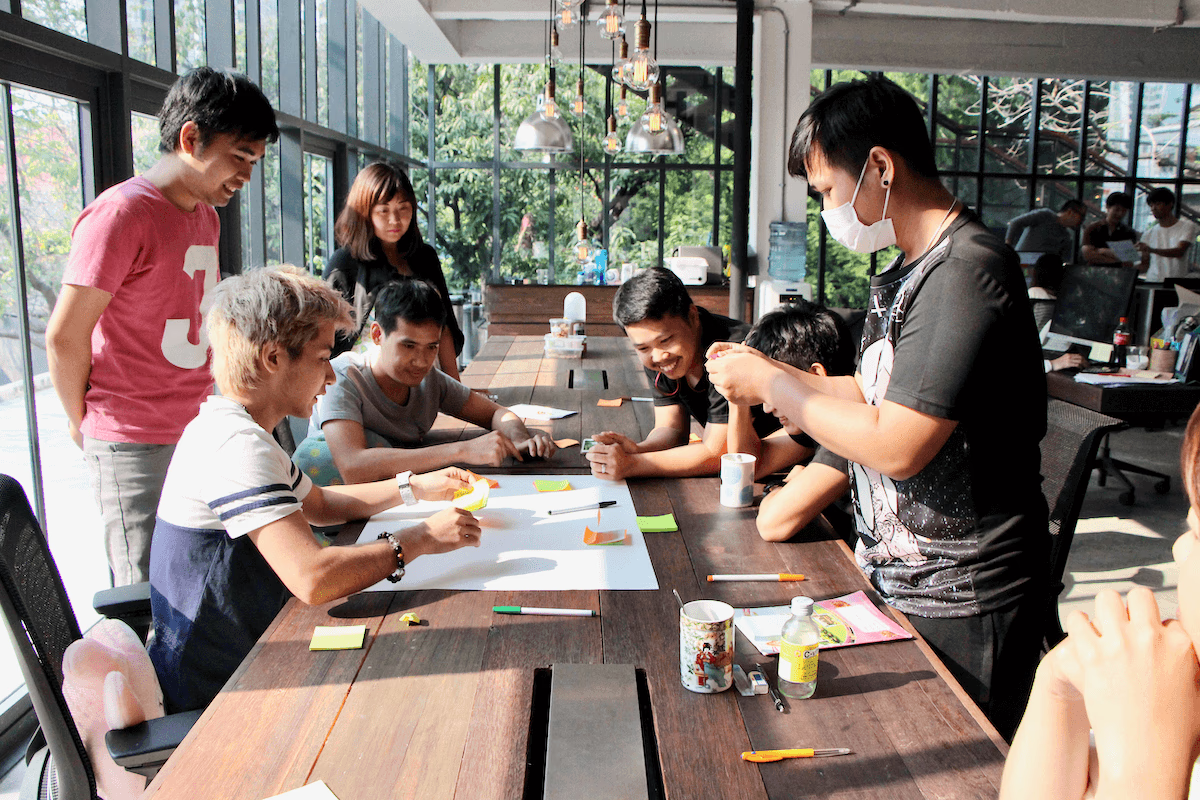
When we were working on creating the system, we split into groups and brainstormed ideas.
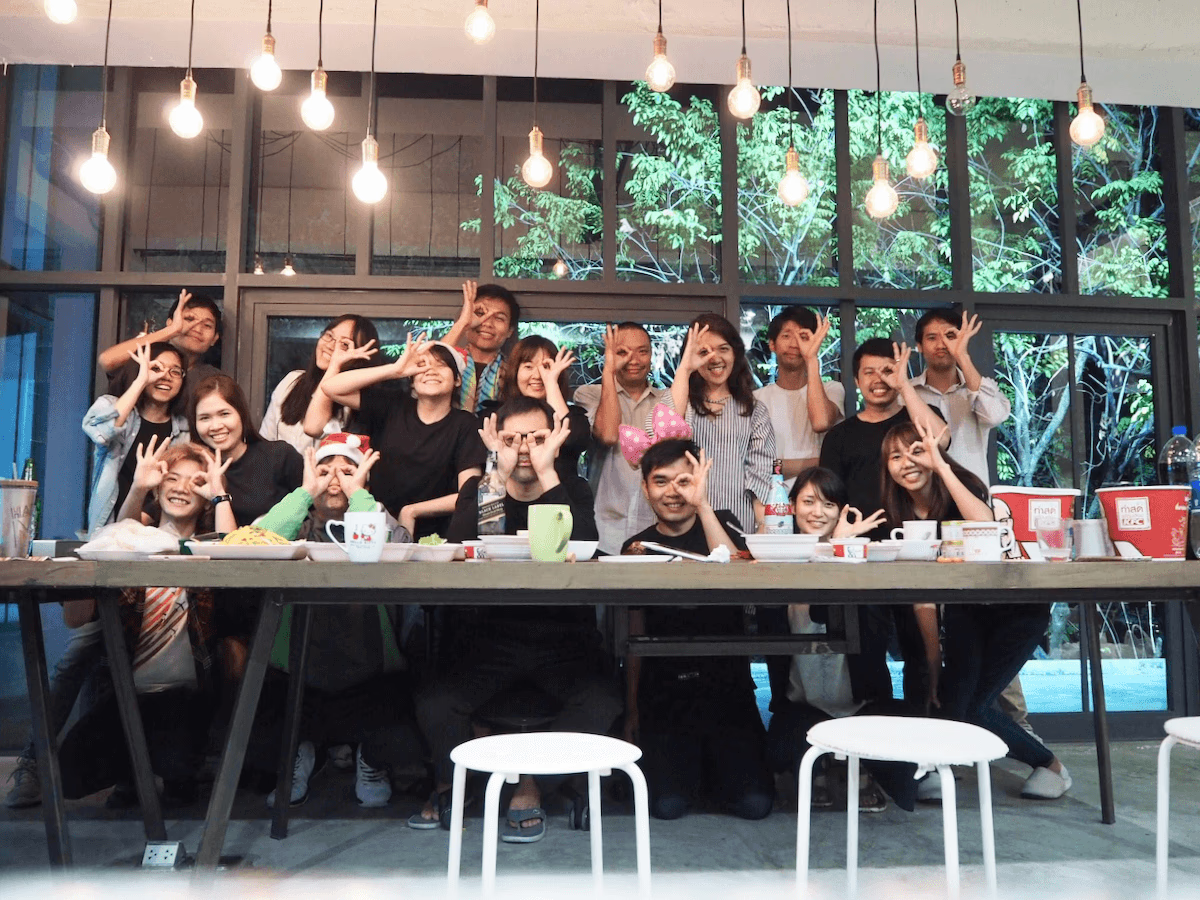
This is a commemorative photo from the end of year party held at the second office. This year, the planning team came up with a lot of games that everyone could enjoy.
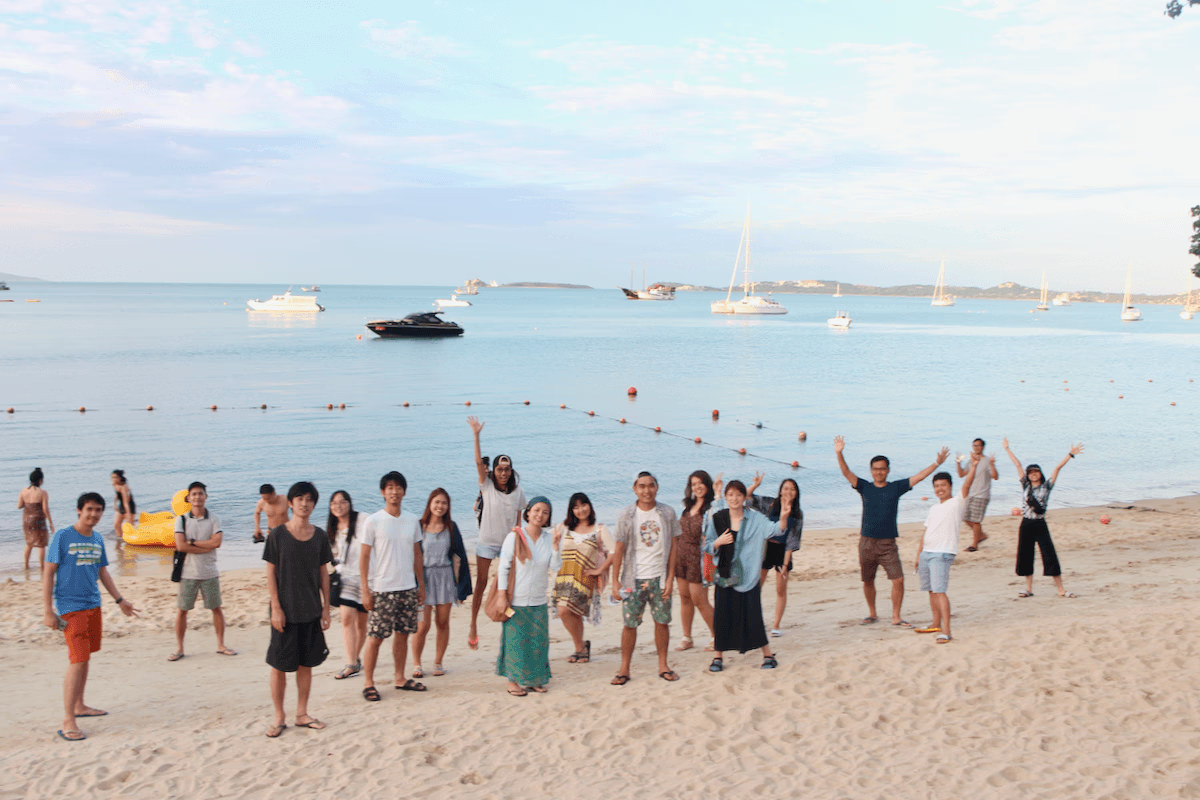
Company trip to Koh Samui (2017). At dusk, we all walked along the beach in front of the hotel to dinner.
Miyagawa: There are many systems that we can no longer implement due to the COVID-19 pandemic, but we want to continue to provide activities and opportunities for interaction, such as overnight trips and day trips, so that we can maintain relationships among members even while working remotely. I think that as long as we focus on these things, we'll be fine.
Up until about the fifth year in Thailand, during the general meeting of Monotai, a person was nominated each month to prepare one or two sheets of A4 paper and introduce themselves, starting from their background, about twice a week. People tend to trust those who know them, so I think that understanding each other through self-introductions had an impact on the atmosphere of Monotai in hindsight.
Sugimoto: Even when building the organization, you conduct recruitment interviews together with the coders, and if a system you've created doesn't work, you discuss it and make changes, so I think you think about things from the members' perspective.
Miyagawa : I want everyone to have initiative, but I myself have a lot to notice, and there are many things that can only be understood on the ground, so I think that good opinions should be adopted from any position. The company is small, and I have most of the decision-making authority. In some cases, we can respond flexibly by making reasonable exceptions.
Actually, I have quite a few standards that I cannot compromise on, and I don't want to force rules that I feel are unreasonable or things that I don't like on others. I want to be fair while the company and employees have their own circumstances. I also have a sense of justice that doesn't want to create a system that gives way to the company's circumstances under the guise of "for the employees." I make decisions based on my own sense of right and wrong, and whether something is fair or not.
I think hiring is more important than training.
Sugimoto : What do you prioritize when hiring team members?
Miyagawa: When listening to a job interview, I imagine the person's inner self and personality. Even if they have a certain level of ability, if I notice negative elements such as an unpleasant aura, arrogance, or a tendency to blame others, I will pass them up. Sometimes, we may not have been able to hire someone based on their ability or potential, but I think there is a high probability that they look at their personality. Once, Hayashi-san happily told me, "Ton-kun (the coder leader) said, 'There is no other company where Thai people work so hard.'"
Sugimoto : Mr. Miyagawa, you place importance on "whether there is rationality" and "whether a win-win relationship can be built."
Miyagawa : That may be true. I feel like I care about what everyone thinks, but I also want to make a rational decision that will be a win-win for everyone, and I end up making decisions with a lot of variables. But sometimes I can't make a decision unless I can find that.
I've been calm since I was a child, and I'm the type who observes what's going on around me. Even at school, I was somewhere in between active and quiet, and I was the type who could talk to anyone in class and understand everyone's feelings, so I think that's reflected in the way I interact with people. As for my siblings, I'm the eldest son, and my younger brothers are seven years apart, so I wanted to let them do what they wanted and respect them. The way I interact with my younger brothers, who I watch over from a little distance, may be a little similar to the way I manage them.
Did the way Sugi interacted with his younger brothers have an influence on his upbringing?
Miyagawa: I feel like "raising" is a bit presumptuous. I don't have the feeling that I have "raised" anyone at all. In fact, I have not raised anyone. I think that there may have been some opportunities or awareness given to help people grow, but in my own sense, I don't really believe that education can do much to help people grow. I expect training based on self-awareness, and I would like to employ people who can do that.
At the beginning, I was reviewing the code of Thai members and working with them, but after I left the site, the on-site director and engineers give each other feedback and work on the project every day. Opportunities for knowledge sharing, etc. are decided by the team at the weekly leaders' meeting. I think there are some opinions that wouldn't come up if I was there, so I want them to speak for themselves without worrying.
When the interview ended, Nozomi Nakajima, who was also present, commented, "I was listening to the interview thinking that they were not raising the members," and I felt the same way. I guess a leader's strength is not just in pulling people along. I think Miyagawa-san has raised Monotai in a way that is both gentle and strong, and embraced them. I would like to create more opportunities to hear from Monotai members again.
